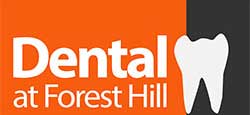Broken Teeth Removal
Unrestorable Teeth
Broken Teeth Removal: Dentistry aims to preserve natural teeth for a lifetime. When a tooth cannot be saved it is considered “non-restorable.” In such cases, the tooth cannot be retained in the mouth and is advisable to extract it.

When is a tooth considered non-restorable?
If the tooth has been severely broken down; either through decay, fracture, or trauma, it may not be possible for a dentist to properly restore the tooth in this situation, leaving it susceptible to further decay, pain, and infection. When this occurs, it may be best to consider tooth extractions and replacement options.
Why is there a need for extraction?
There may be a need for extraction of teeth that cannot be restored endodontically, due to mobility, the can’t support dentures/prosthetics. Often, non-restorable teeth can lead to pathosis that causes more infection, inflammation and sometimes tooth fractures not only to themselves, but also to supporting tissues and bone structures beneath them.
The following reasons may make a tooth non-restorable:
- Natural tooth structure has been extensively decayed or destroyed. As a result of this situation, the dentist is unable to adequately restore the tooth, leaving it susceptible to further decay, pain, and infection.
- There are advanced periodontal issues. In the absence of periodontal treatment, the teeth are predisposed to recession, bone loss, and eventual tooth loss.
- The resorption of teeth occurs as a result of trauma or unknown causes.
- The probability of retaining an avulsed or “knocked out,” tooth is poor if it is not placed back into the socket within one hour (depending on the stage of root development).
- When a vertical root fracture communicates with the oral cavity, it has a hopeless prognosis and is considered irreversible and extraction is advised.
Replacing missing tooth/teeth
Several options exist for replacing missing tooth/teeth; however, each situation is unique and the pros and cons of each option would vary greatly based on the individual’s general health, oral hygiene, the condition of adjacent teeth, comfort, expectations, aesthetics, and other factors. A patient’s neighbouring and opponent tooth may also be a very important factor in deciding the best treatment option.
Implants: Titanium fixtures are implanted into the bone to replace missing teeth. A crown is placed over the implant substructure after it has been integrated into jaw bone.
Bridge: A dental bridge permanently replaces missing teeth with false teeth. The bridge is attached to the teeth on either side of the gap. They usually made of porcelain, metal or zirconia.
Denture: Replaces one or more missing teeth, in a flexible resin or metal cobalt chrome frame.
All You Need To Keep Smiling
Payment Options / Plans
Payment plans are essentially loans, which can support you in managing the high cost of dental treatment. Rather than paying for your dental work in an upfront lumpsum, a payment plan allows you to pay in instalments over a period of time. We have onboard, payment plan service providers who will make your payment plan’s instalments even more affordable.
There are several payment options available at our surgery including Cash, Cheque, EFTPOS, Credit Card, HICAPS, AMEX and Direct Deposit.


